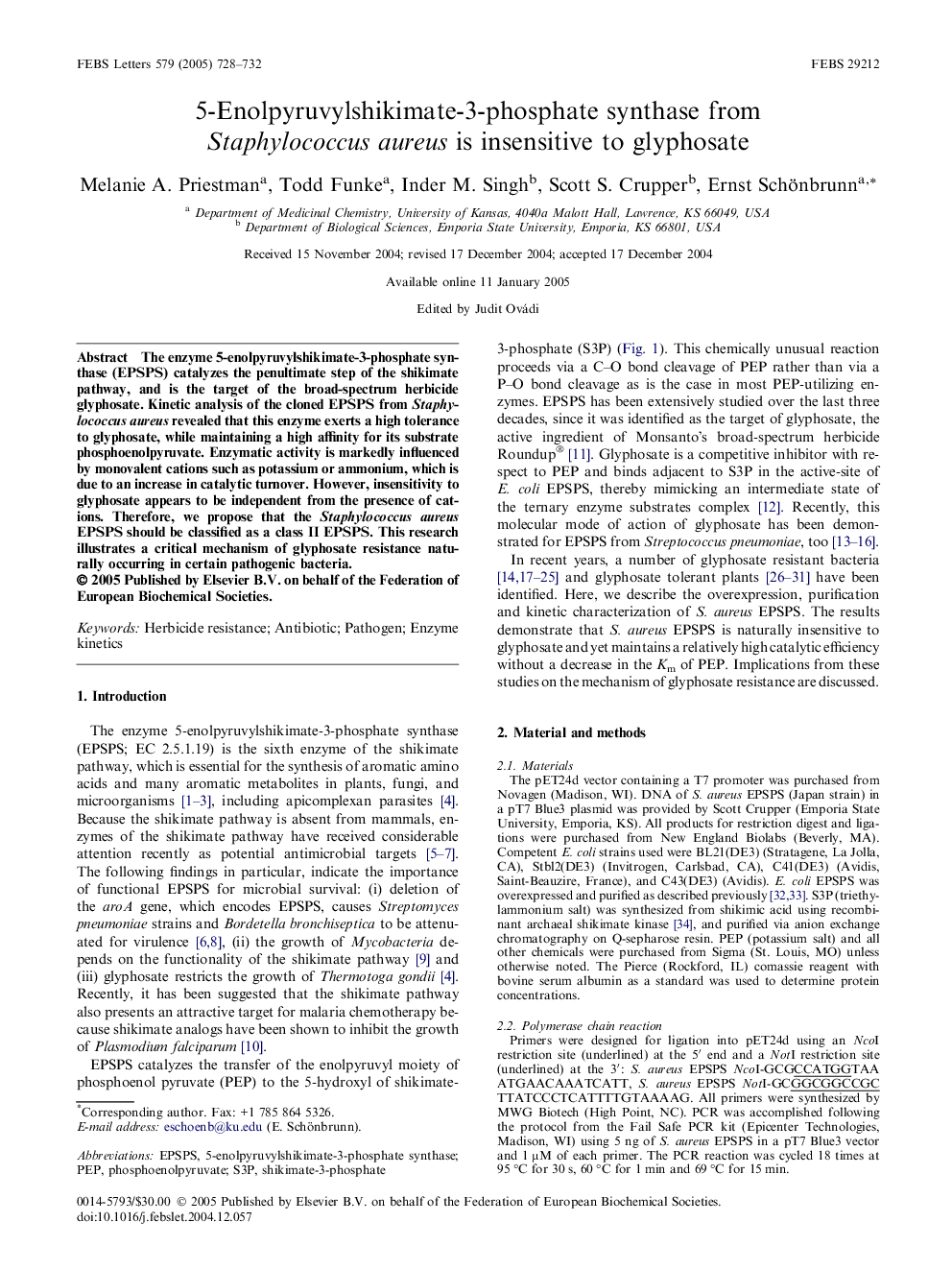| Article ID | Journal | Published Year | Pages | File Type |
|---|---|---|---|---|
| 10873375 | FEBS Letters | 2005 | 5 Pages |
Abstract
The enzyme 5-enolpyruvylshikimate-3-phosphate synthase (EPSPS) catalyzes the penultimate step of the shikimate pathway, and is the target of the broad-spectrum herbicide glyphosate. Kinetic analysis of the cloned EPSPS from Staphylococcus aureus revealed that this enzyme exerts a high tolerance to glyphosate, while maintaining a high affinity for its substrate phosphoenolpyruvate. Enzymatic activity is markedly influenced by monovalent cations such as potassium or ammonium, which is due to an increase in catalytic turnover. However, insensitivity to glyphosate appears to be independent from the presence of cations. Therefore, we propose that the Staphylococcus aureus EPSPS should be classified as a class II EPSPS. This research illustrates a critical mechanism of glyphosate resistance naturally occurring in certain pathogenic bacteria.
Keywords
Related Topics
Life Sciences
Agricultural and Biological Sciences
Plant Science
Authors
Melanie A. Priestman, Todd Funke, Inder M. Singh, Scott S. Crupper, Ernst Schönbrunn,
